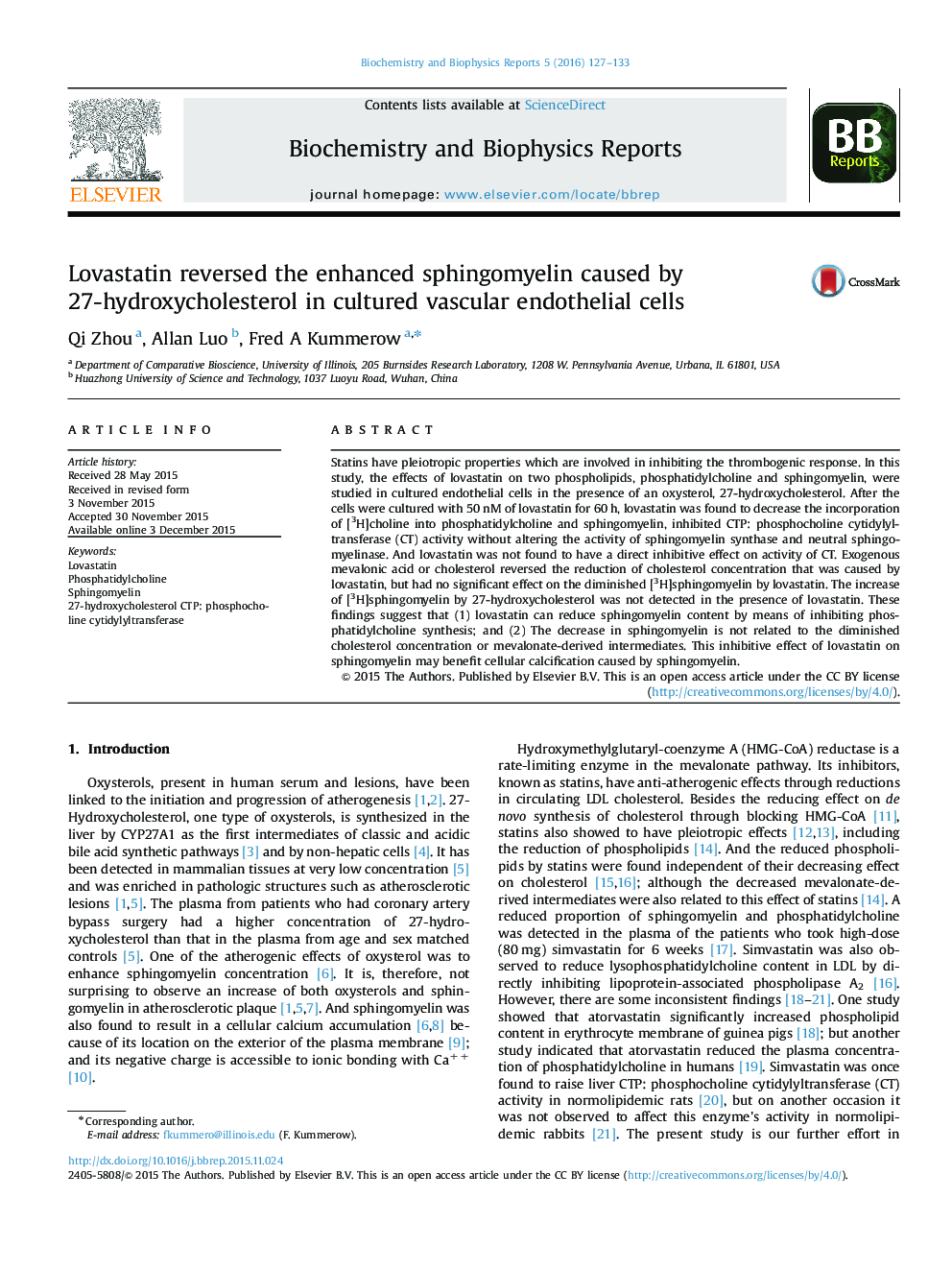| Article ID | Journal | Published Year | Pages | File Type |
|---|---|---|---|---|
| 1941711 | Biochemistry and Biophysics Reports | 2016 | 7 Pages |
Abstract
Statins have pleiotropic properties which are involved in inhibiting the thrombogenic response. In this study, the effects of lovastatin on two phospholipids, phosphatidylcholine and sphingomyelin, were studied in cultured endothelial cells in the presence of an oxysterol, 27-hydroxycholesterol. After the cells were cultured with 50Â nM of lovastatin for 60Â h, lovastatin was found to decrease the incorporation of [3H]choline into phosphatidylcholine and sphingomyelin, inhibited CTP: phosphocholine cytidylyltransferase (CT) activity without altering the activity of sphingomyelin synthase and neutral sphingomyelinase. And lovastatin was not found to have a direct inhibitive effect on activity of CT. Exogenous mevalonic acid or cholesterol reversed the reduction of cholesterol concentration that was caused by lovastatin, but had no significant effect on the diminished [3H]sphingomyelin by lovastatin. The increase of [3H]sphingomyelin by 27-hydroxycholesterol was not detected in the presence of lovastatin. These findings suggest that (1) lovastatin can reduce sphingomyelin content by means of inhibiting phosphatidylcholine synthesis; and (2) The decrease in sphingomyelin is not related to the diminished cholesterol concentration or mevalonate-derived intermediates. This inhibitive effect of lovastatin on sphingomyelin may benefit cellular calcification caused by sphingomyelin.
Related Topics
Life Sciences
Biochemistry, Genetics and Molecular Biology
Biochemistry
Authors
Qi Zhou, Allan Luo, Fred A Kummerow,
